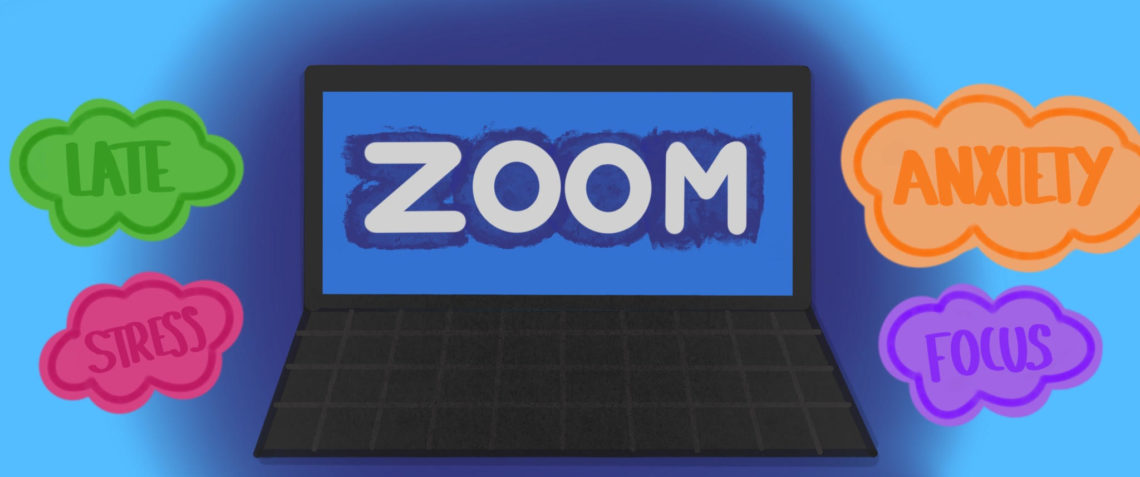The Truth about Attending Online School with a Disability
Mena Spencer
Due to the spread of COVID-19, schools across America have been forced to adapt to a virtual or hybrid program to keep staff, students, and their families safe. Changing from an in-person classroom environment to one through a screen has been difficult for many families; however, this transition can be particularly challenging for students with 504s and Individualized Education Plans (IEPs).
504s and IEPs are formal educational plans developed for individuals with learning, mental, or physical disabilities that can affect their success at school. A 504 is a statute that is intended to “level the playing field” for students with disabilities. An IEP, however, is slightly different. An IEP is a more “hands-on” version of a 504.
Essentially, these programs act as a contract between a student and their school, to provide additional support to aid them throughout the school day.
These accommodations, however, were structured in compliance with normal in-person schooling. With the new virtual learning system, T.C. Williams has been given the task of incorporating 504 and IEP support systems into the Virtual+ Program.
Alexandria City Public Schools has outlined general information regarding the updated system on their website, addressing how specialized services, such as therapies, are being provided to students and their families through an online format. Additionally, there are other strategies to ensure student success, such as weekly check-ins with Student Support Teams and monthly virtual Principal Chats.
However, as a student with a 504 myself, I had some concerns about how my accommodations would be handled. With this in mind, I set up a meeting to discuss virtual 504 and IEP supplements with the principal, Peter Balas, and Darrell Sampson, the Executive Director of the Student Support Team.
The Challenges of Virtual Learning
Before getting into the details of the new virtual support systems, I wanted to understand more about the process the school staff underwent to design virtual schooling, and what they thought about when addressing concerns regarding special education.
Balas explained that scheduling has always been a challenge, even before the coronavirus, comparing the task to “a big puzzle.”
When you think about it, the staff of T.C. has to craft individualized schedules for about 4,000 students a year, making sure that everyone is completing their required credits, while also maintaining reasonably-sized classes.
Now, not only must the staff do all of this virtually, but they also have to figure out how to implement necessary elements, such as accommodations, that have previously been structured to fit a physical learning environment. Balas says that his staff remains flexible, patient, and ready to problem-solve as new questions and challenges arise each day as students continue virtual learning.
Accommodations in the Virtual Environment
In regard to accommodations like extra time on tests and assignments in a virtual classroom setting, Balas said that there are lots of different factors to consider when handling accommodations, such as different classroom procedures and student populations.
While T.C. is still working on perfecting the details, he says that each student is different, and requires an individualized plan to ensure success. This involves a lot of communication with the teachers, especially by students, to make sure that proper supports are supplied.
One thing teachers have been doing to accommodate extra testing time is to have specific days designated only for quizzes and tests, to allow students as much time as they need to complete it. Balas, however, suggested that teachers can also host small breakout room sessions for different testing groups.
However, many students with disabilities are still struggling to learn remotely. Senior Katherine Donnellan spoke up about how difficult it is to communicate with teachers online. Many students with 504s or IEPs have a “Flash Pass,” which grants students the ability to step out of class for a given amount of time, due to their disability. However this is not an option made available with virtual school.
Donnellan gave a personal example: “In school, if I was not doing well mentally, I had a flash pass to either go to the nurse or straight to my social worker or my counselor.”
She continued, “Obviously, I can’t do that anymore…if I am having a pressure headache or migraine, which I’ve been having a lot the past couple of months, I can’t really tell my teachers that I am having a medical issue and then go out of class to be in a quiet and less stimulated environment.”
The absence of a flash pass not only affects a student’s mental health, but also their transcripts. Donnellan conveyed her frustration about this effect, describing that, “even if I text my teachers and say ‘hey, I’m not doing well. I have a bad migraine right now. I can’t come to class.’ I’m still marked absent and it’s an unexcused absence, which is, in my opinion, sort of unfair.”
Despite this, Donnellan commented on how she has, “lucked out because my teachers, my social worker, and counselor have been extremely kind to me and accommodating,” even though, “online school has just made it so much harder to learn with a learning disability.”
Another senior, Myla Rice, also shares some of Donnellan’s concerns. Like Donnellan, she has felt her Attention Deficit Hyperactivity Disorder (ADHD) has significantly impacted her assignments. When asked about her ability to focus during class, Rice commented that she found it difficult, “because I find myself falling behind with how many assignments we have, so then sometimes during class I’m trying to study for my next test or do my homework that I didn’t get to finish, even with the two hours in the morning.”
Rice, however, noted that she liked the virtual format, even though she can get anxious during classes.
Take-Aways
While some students with 504s and IEPs are excelling at online school, others are struggling with not being in-person in a more controlled environment at school.
As students in grades 6-12 receiving special education citywide and self-contained reading and math services, along with Newcomer English Learner Students in grades 6-12, return to school today (Tuesday, March 9), students and staff will face a new set of challenges transitioning from virtual to hybrid learning. Especially for 504 and IEP students, ACPS must now navigate how accommodations will look in a socially-distanced learning setting.
While virtual schooling has been a bit rocky for most, there have also been a lot of positives. Darell Sampson was excited to relay that the school has been actively continuing processes after spring break to create 504 and IEP plans. He also was very impressed with how smoothly the school has transitioned to online meetings.
The biggest takeaway I have from this is how important communication is with the Virtual+ model, not only for those with specialized education plans, but for all students. While teachers are trained to notice when someone is struggling in class, it is imperative that students also advocate for themselves, whether that be directly with their teacher, or through their parents. However, teachers should also be more understanding of students’ needs during this time, especially those with 504s and IEPs.
COVID-19 has not only affected our schools, but our everyday lives as well. Everyone needs all the help that they can get right now, and T.C. Williams is dedicated to provide the support and resources needed to ensure that help is provided.






